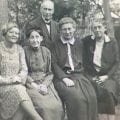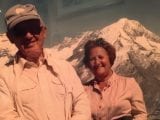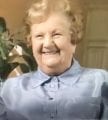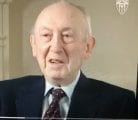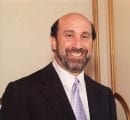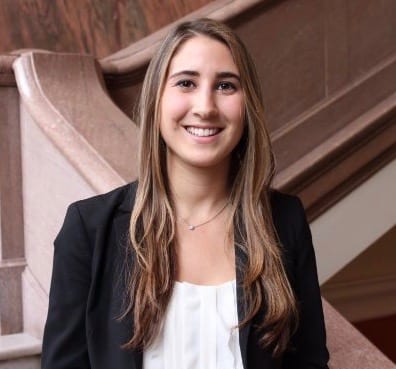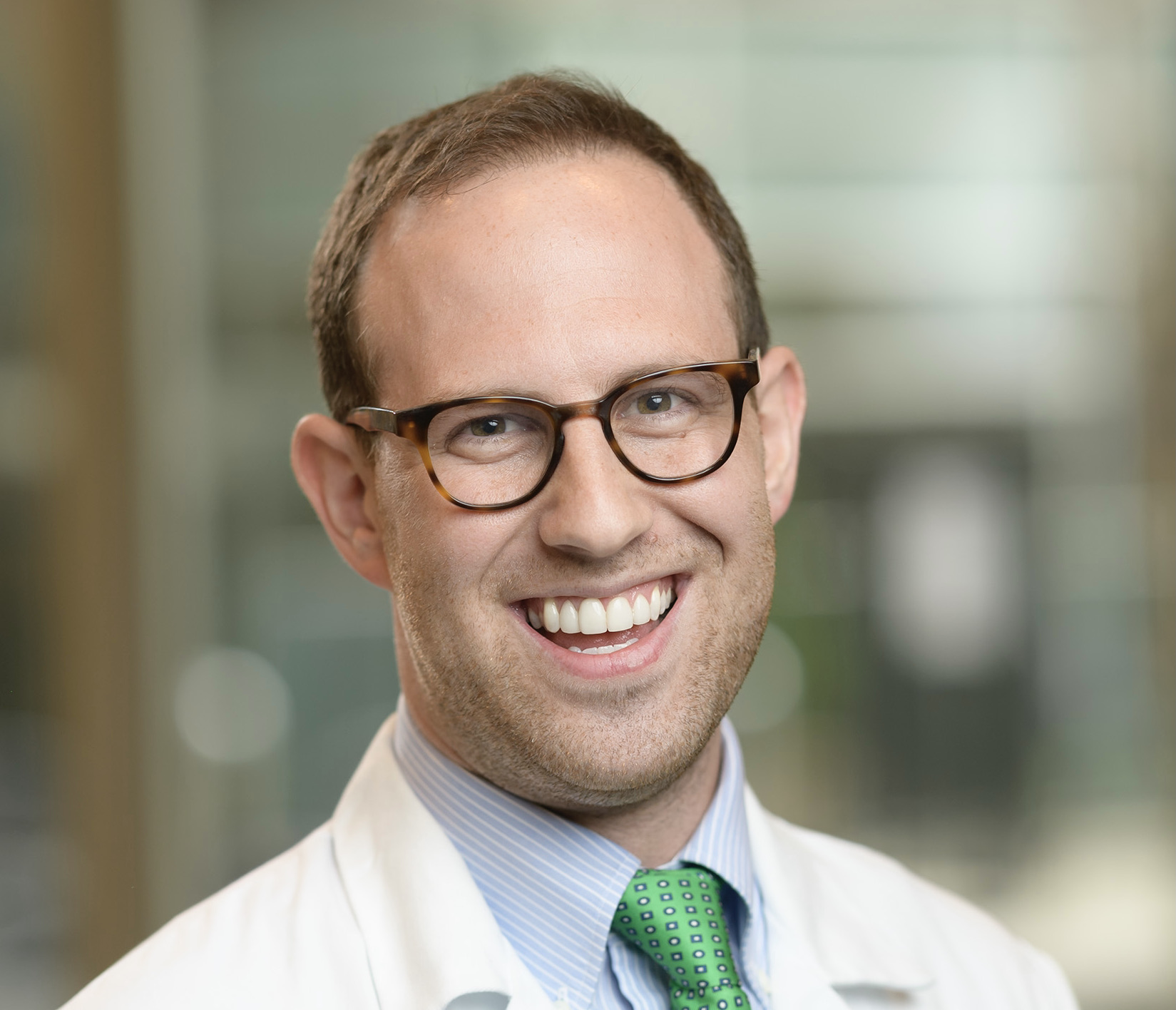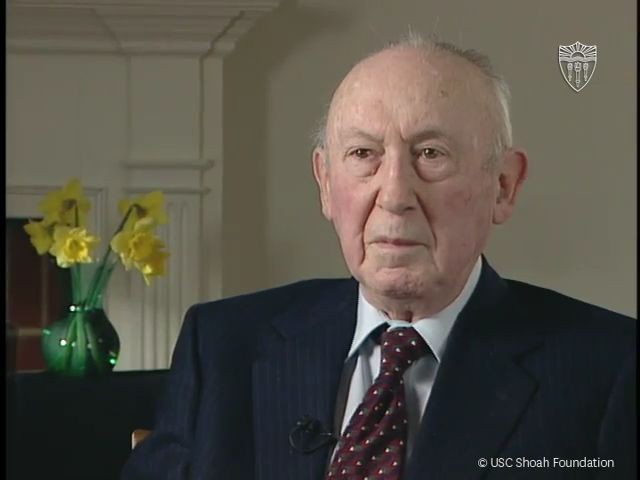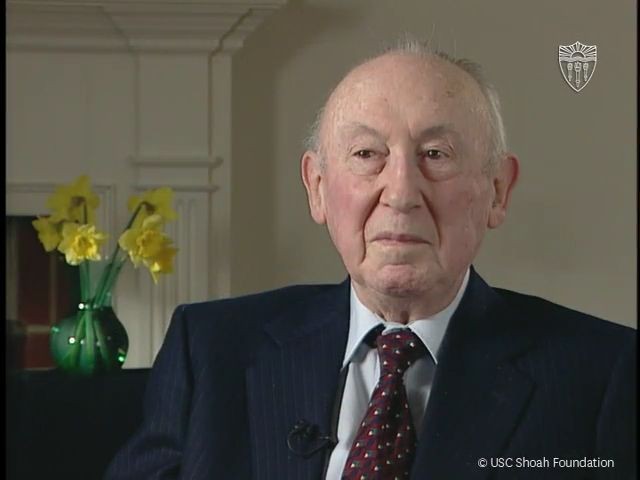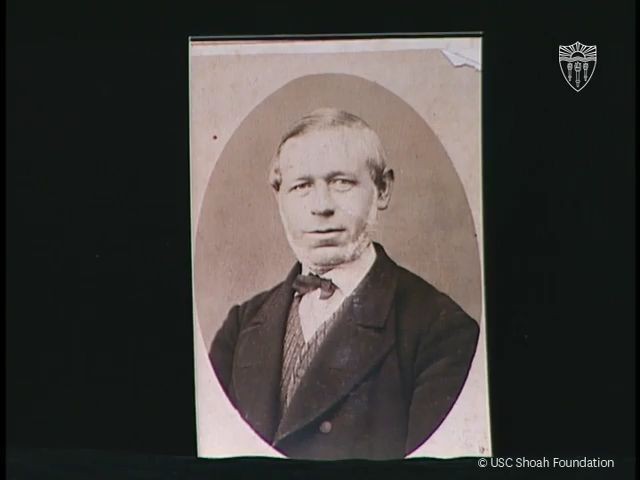- Local Survivor registry
- ARNO HERZBERG
- Local Survivor registry
- ARNO HERZBERG
Survivor Profile
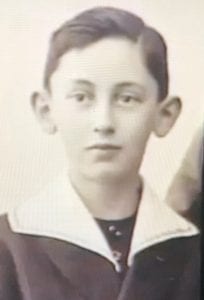
ARNO
HERZBERG
(1907 - 2002)
PRE-WAR NAME:
ARNO HERZBERG
ARNO HERZBERG
PLACE OF BIRTH:
FILEHNE, GERMANY
FILEHNE, GERMANY
DATE OF BIRTH:
SEPTEMBER 3, 1907
SEPTEMBER 3, 1907
LOCATION(s) BEFORE THE WAR:
BERLIN, GERMANY
BERLIN, GERMANY
LOCATION(s) DURING THE WAR:
NEWARK, NEW JERSEY
NEWARK, NEW JERSEY
STATUS:
SURVIVOR, REFUGEE
SURVIVOR, REFUGEE
RELATED PERSON(S):
ANNELIESE HERZBERG - Spouse (Deceased),
SOLOMON HERZBERG - Father (Deceased),
BETTY HERZBERG - Mother (Deceased),
PETER HERZBERG - Son (Deceased),
LISA CHRYSTAL HERZBERG - Daughter-in-law,
BENJAMIN HERZBERG - Grandson,
ARIELLE HERZBERG - Granddaughter,
ILANA HERZBERG - Granddaughter,
STEVEN HERZBERG - Son,
WENDY HERZBERG - Daughter-in-law,
GARY HERZBERG - Grandson,
RACHEL HERZBERG - Granddaughter
-
BIOGRAPHY and Eulogy BY PETER HERZBERG, SON
“Poopy” Knew His Life Had to Have Meaning—and it Did
Special to NJ Jewish News
In second grade, I was asked to write an essay on my favorite hero. I wrote about my father. My teacher asked me in front of the class why my father was my hero—to her, he was only a small man with a heavy German accent and a limp. Embarrassed and unable to articulate my deepest thoughts, I said I did not know. But today, 50 years later, I can articulate why my father, my Poopy, is still my hero.
My father never feared the consequences of his actions and, as a result, he always had the courage of his convictions. He did not back down from a debate; he did not fail to say what was on his mind to ingratiate himself to others; he did not offend the person he disagreed with. He lived his life passionately and honestly—and always on his terms. My father was born in 1907 in Filehne, a small town in then northern Germany near the Polish border. His father, Solly (whom my brother Steven is named after), was a town father trusted by all for his honesty and veracity. His mother, Betty (whom my son Benjamin is named after), must have been a highly intelligent, loving mother. With scholarship assistance he received from a neighbor, my father studied for his doctorate of law in Heidelberg. He must have been virtually emaciated in those years, uncompromisingly keeping his kosher ways in this all too German university town, but he succeeded in obtaining his doctorate and went on to train to be a judge. He became involved in the non-Zionist Jewish youth movement of his time and made lifelong friends who were regular Sunday guests at our house during my youth and whose values and guidance I count among the most influential of my life.
He also became a Landsgerichrat in Berlin, the equivalent of a municipal judge, but was thrown off the bench in 1932 upon Hitler’s rise to power. He then turned to his Jewish youth movement connections and became head of the Berlin bureau of the Jewish Telegraphic Agency. He risked his life trying to get out the truth of what was happening in Germany despite daily exposure to the arrests and viciousness of the Nazis.
In an article he wrote for the Leo Baeck Institute, “The Jewish Press under the Nazi Regime: Its Mission, Suppression and Defiance,” he wrote:
We had an eventful summer in 1937; everyday brought its share of questions. Then one day in the autumn of 1937 it really was over. Early one morning I was alone with one secretary in our office. The doorbell rang; in stormed a horde of men. Like vultures, they grabbed every piece of paper, pored over each cable or telegram, whether they understood English or not, turned over the wastepaper baskets and read abandoned news items. They left us an order from the Gestapo closing the offices and threatening everybody who might try to resume operations. And out they went. I wondered why they had left without taking me into custody.
The closing of the JTA office was serious blow to the Jewish press. The larger papers tried to replace our service with their own sources of news from abroad. But what they did was nothing but a stopgap measure. By November 1938 with liquidation of all Jewish newspapers, isolation of German Jewry was complete. As the darkness of Hitler’s regime enveloped Europe, he met my mother cutting into a line at a bank at a ski resort in Czechoslovakia. His world was never again to be the same again: My mother protected him from the consequences of his actions and kept him physically and intellectually vigorous for the next 63 years. My parents had an eternal love for each other.
My mother also had the money and connections to save my father’s life and buy him and her parents transport out of Germany; he came to America in September 1938 around his 31st birthday and my mother arrived in January 1939 at which time they were married by a cantor in Newark, a community unknown to them, with hardly any family to attend. But what happened next shaped my father more than any other event of his life: His mother and father were left in Germany and died without him in the concentration camps. His sorrow, guilt, and loneliness from his abandonment of his parents pained him for the rest of his life. His old world came to an end then and there; he never feared anything again. He was not afraid of the consequences of his behavior because he felt the worst loneliness; nobody could cause him worse pain than his grief over his parents. But he also knew that the only reason that could justify his actions to save his own life was to save his future, family-to-be.
The last article my father published reflects this (Jewish News, March 9, 1995). He wrote an article about the elegant candlesticks that were used in my parents’ home every Shabbat. He wrote about how he had smuggled those candlesticks out of Germany and into America. The article concludes with a revelation of his deepest hurt and hopes for his grandchildren.
We survived. The candlesticks survived. A new generation is about to take over. Little Rachel and the three-year old twins say the blessing my mother used to recite. Every time I hear those eternal words, her picture passes before my eyes. The life she endured, the death she suffered at the hands of the vicious Germans is engraved in memory and attitude. It is like a book that never closed. It is like a hurt that never can heal. There are few witnesses left to the disaster that befell our family. But the candlesticks will tell the story, long after we are gone.
Because his law degree and education were not transferable to America, my father struggled, working as a factory worker sweeping floors in the Goodman noodle factory and measuring graves in a cemetery. Eventually, he simultaneous worked and went to school finally becoming a certified public accountant. He first worked for another accountant, learned the profession, and then went out on his own to become a successful accountant of his own.
My father never really knew how successful he was—nor did he really care. He really only cared about one thing: the survival of the Jewish way of life. He was cantankerous with family, friends and those he perceived as not fully committed to his cause. But he was also respectful and gentle with those who did not agree with him but stood up to his verbal arguments, though the criterion to get his respect with those who did not agree was to at least share his passion that the Jewish way of life must continue. I rarely agreed with my father on most subjects. I also disagreed with his …let’s call them lack of tactics. But we agreed that we would disagree. He wrote ultraconservative articles about not allowing women to participate in synagogues that I found offensive. He wrote articles about how stupid it was for Jews to participate in the civil rights movement because of the endemic black anti-Semitism. Some of these views embarrassed me, as they were so out of sync with the times. But you need to understand where he had come from. The survival of American Jewry was the most important reason and motivating force in his life. Nothing else mattered but posterity. No matter how embarrassing some of his positions were, I was always proud that he stood up for what he believed in.
My father deeply believed in G-d and that there was a future for his Jewish people in Israel and, most especially, here in America. As I said, his faith was based on a simple fact: He had survived the worst that life had to offer. His life, he concluded, therefore must have some meaning, and he must be sure to make his mark. He feared no consequences, and I think that is also a key to his religious beliefs. In order to jump the abyss over the rational arguments that there is no reason for faith, one must leap without fear of the consequences to believe that there is a force that helps and can hurt us in our limited lives. After years of wrestling with my own faith, I finally understood my father’s view after my operation for cancer: now I too fear no consequences and believe that my life must have meaning. In fact, whenever I left my father’s house, he said to me, “Geh mit G-tt.” “Go with G-d.” Before my operation, I never answered him; after my operation, I always replied to him, “I do.”
My father feared only one thing: the stupidity of those who hold Jewish leadership positions.
For example, he was totally opposed to the Oslo peace initiative. He felt it would only temporarily appease the Arab appetite for land and cause them to ask for more. He was suspicious of those seeking reparations from the Germans because he felt the lawyers and Jewish organizations would get a disproportionate share of any reparation recovery. Having chosen to work within Jewish organizations rather than from outside, I always hoped that I assumed positions that he thought responsible. He agreed with me most of the time on what I was seeking to accomplish, which from him was the highest praise possible.
Poopy, it is now time for me to say, “Geh mit G-tt.” I have never been more in awe of you than in the last several months when you decided that you had had enough of life and could not bear to go without complete control of your mind and will. You could not bear life –except on your own terms. You decided you could not torture your dear “Mommy.” But Poopy, we were so lucky. We had the time together to tell how much we meant to each other, how much we inspired each other. Your inspiration—your lessons—will be with me until the day I die. And I know that you, Rachel, Gary, Ben, Ilana, Arielle—will carry those lessons—and hopefully the inspiration too.
So my dear Poopy, “Geh mit G-tt.” I know you will—and so will I.”
Editor’s Notes:
Annelie testifies in her Shoah interview that Arno’s father, Solomon died in Sachsenhausen concentration camp frozen to death. His mother perished in an unknown location.
Refer to Annelie’s Survivor Registry
Refer to Peter Herzberg, Benjamin Herzberg and Arielle Herzberg inVoices of the Descendants
Refer to Arno’s testimonial video in Related Media and Gallery (on website toolbar)
-
SURVIVOR INTERVIEW:
Refer to Biography and Eulogy above and excerpted Shoah videos in Related Media
-
Sources and Credits:
Credits:
“Poopy” Knew His Life Had to Have Meaning—and it Did by Peter Herzberg, son. Special to NJ Jewish News January 10, 2002/ (26 Tevet, 5762); Excerpted Shoah Videos donated by Lisa Chrystal Herzberg. Digital historic and family photographs donated by Lisa Herzberg
The SSBJCC Holocaust Memorial and Education Center gratefully acknowledges donation of excerpted Shoah Videos of Arno Herzberg and the historic and family photographs therein by Lisa Herzberg and family.



